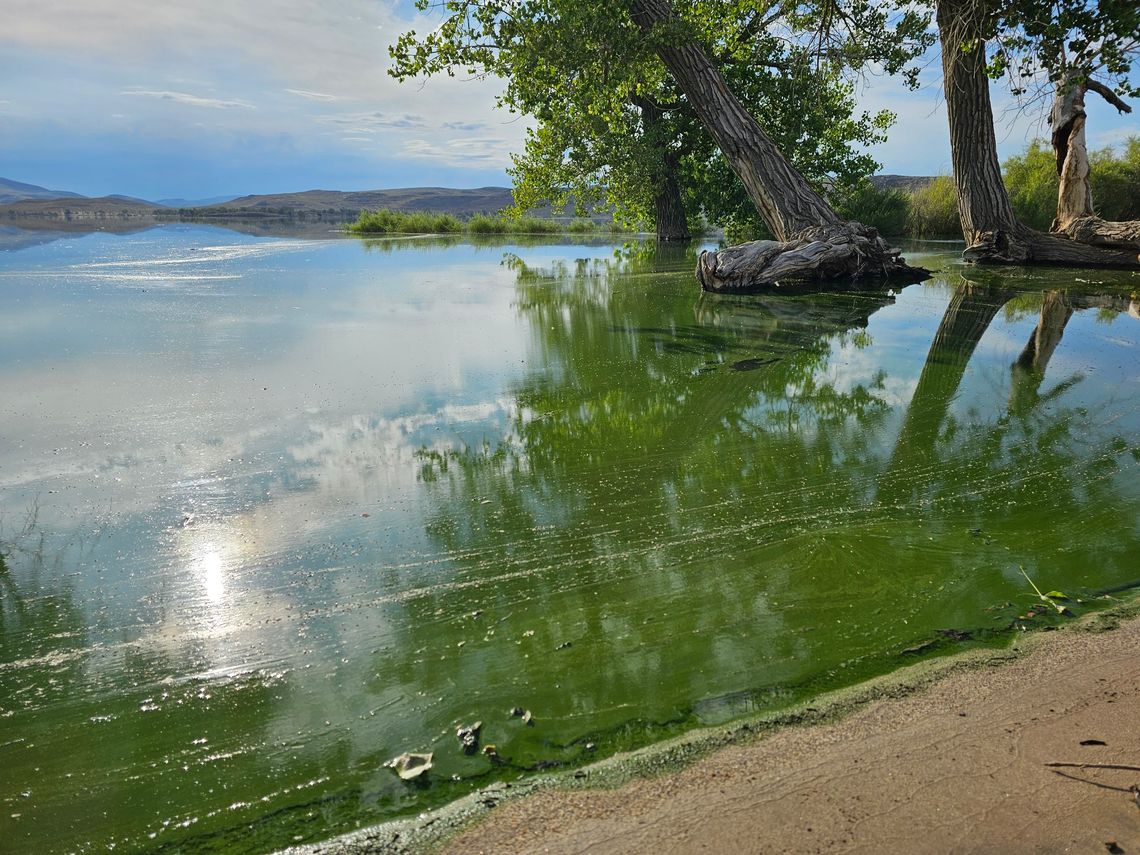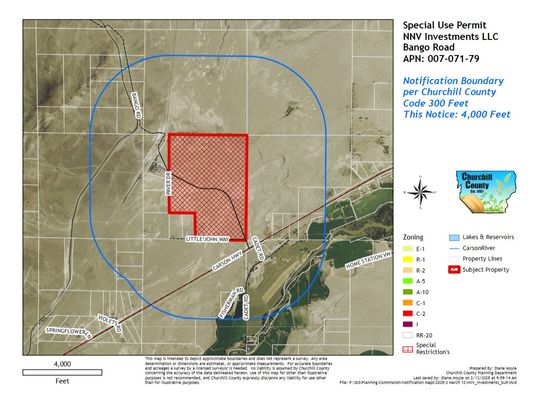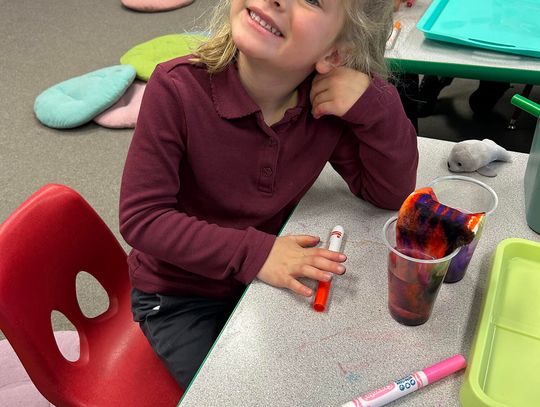On July 21, Nevada State Parks issued a Park Alert related to a potential harmful algal bloom (HAB) that has been identified in the reservoir at Lahontan State Recreation Area. Park visitors and their pets should avoid contact with the water due to potential adverse health effects.
The Interagency HAB Task Force which is comprised of officials from the Nevada Department of Health and Human Services, the Nevada Division of Environmental Protection, Nevada State Parks, and the Nevada Department of Wildlife, are working together to ensure the public is notified to help protect the health of park visitors and their pets.
Exposure to toxic algae can occur by touching, swallowing, or inhaling affected water, and can lead to mild or potentially serious health issues. Children and pets are especially at risk. Visitors and their pets are urged to avoid swimming in the lake water until further notice. The lake will remain open for motorized boating as well as paddling.
Algal blooms can last for days or weeks and toxins can last for days after the bloom. They can occur at any time of the year but are most common in the summer when the water is warm and stagnant.
A HAB has many warning signs that may be present to be aware of, including if the water smells rotten, has large mats or scum floating on the surface, or if the water looks like green paint or has bright colors like blue, green, white, brown, or red.
To protect yourself from toxic algae, avoid recreational activities such as wading, swimming, jet-skiing, or water skiing that put you in contact with water containing possible algal blooms. Keep children and pets away from the water.
Do not drink, cook, or wash dishes with the affected water.
If you come in contact with the water or the algal scum, wash the area thoroughly with clean water from a safe source.
Fish can collect algal toxins in their bodies, but fish in Nevada likely have lower levels because blooms are irregular. If you decide to eat a fish you catch during a bloom, wash it carefully with clean water and only eat the fillets. Throw skin and internal organs in the trash, which may have higher levels of algal toxins.
To learn more about HABs, visit the Center for Disease Control and Prevention website at www.cdc.gov/habs/. To report a suspected HAB in Nevada call (888) 331-6337.









Comment
Comments